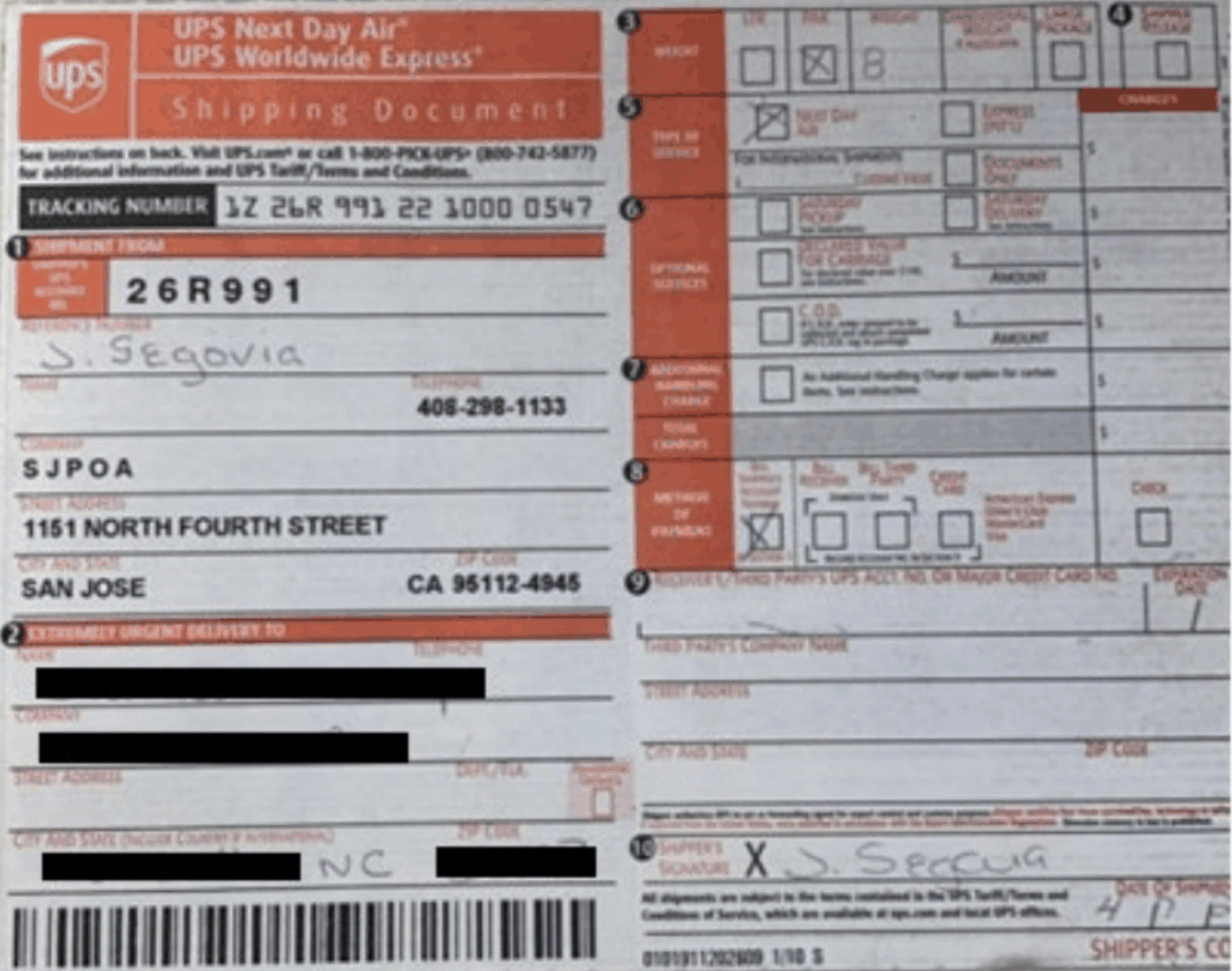The top executive for San Jose’s police union imported synthetic opioids over an eight-year period to orchestrate a national drug ring that disguised packages of pills as wedding gifts, makeup and chocolate, federal officials said Wednesday.
Joanne Marian Segovia, the 64-year-old executive director of the San Jose Police Officers’ Association, used her home computer and police union equipment to facilitate the mailing of the synthetic opioids, according to the U.S. Attorney’s Office. The drug smuggling allegedly took place from October 2015 to January 2023, with Segovia facilitating more than 60 shipments from Hong Kong, Hungary, India and Singapore.
In a three-and-a-half-year period ending in January, officials allegedly intercepted five shipments to Segovia that contained thousands of pills, including synthetic opioids Tramadol and Tapentadol. Opioid overdose deaths have reached epidemic levels across the country, particularly in San Francisco. Since 2019, more than 2,000 people in the city have died—often after overdosing on the synthetic opioid fentanyl.

Segovia allegedly used the encrypted messenger WhatsApp to handle logistics, exchanging hundreds of messages with someone using a phone with an India country code. The messages—containing shipping and payment details, pictures and receipts—continued into this month even after federal investigators interviewed Segovia in February, prosecutors said.
On March 13, federal agents in Kentucky seized a package that contained valeryl fentanyl and was addressed to Segovia, officials said. The package originated from China and the contents were listed as a “clock.”
Segovia was charged with attempting to unlawfully import valeryl fentanyl, according to a complaint that was unsealed Tuesday (opens in new tab). The complaint alleges Segovia was apprehended as part of an ongoing Homeland Security investigation into controlled substances being shipped into the Bay Area from abroad.
Will Edelman, an attorney listed for Segovia in court records, did not immediately respond to a request for comment. Edelman previously worked as a federal prosecutor in the same U.S. Attorney’s Office that charged Segovia, according to his LinkedIn profile (opens in new tab).
The complaint against Segovia said that she told federal investigators she had nothing to do with the drug smuggling and blamed the shipments of pills on a woman she identified “as a family friend and housekeeper.”
Segovia allegedly told investigators that after their February meeting, she realized “like a light bulb” that it must be this unnamed woman who smuggled the drugs.
However, the complaint casts doubt on Segovia’s statements and includes photos that she allegedly sent to a collaborator. One image shows a computer with police union work materials in view and another shows her signature on a packing slip sent from the police union address.

Tom Saggau, a spokesperson for the San Jose Police Officers’ Association, said the union became aware of the alleged crimes on Friday and has been cooperating with federal authorities. He added that Segovia had no role in handling financials for the organization and was not involved in decisions about the organization’s stance on police issues.
“No one at the POA is involved or had prior knowledge of the alleged acts,” Saggau said. “The POA immediately placed the civilian employee on leave and as is standard procedure cut off all access to the POA. The board of directors is saddened and disappointed at hearing this news, and we have pledged to provide our full support to the investigative authorities.”
If convicted, Segovia could face up to 20 years in prison and a fine of up to $250,000.
